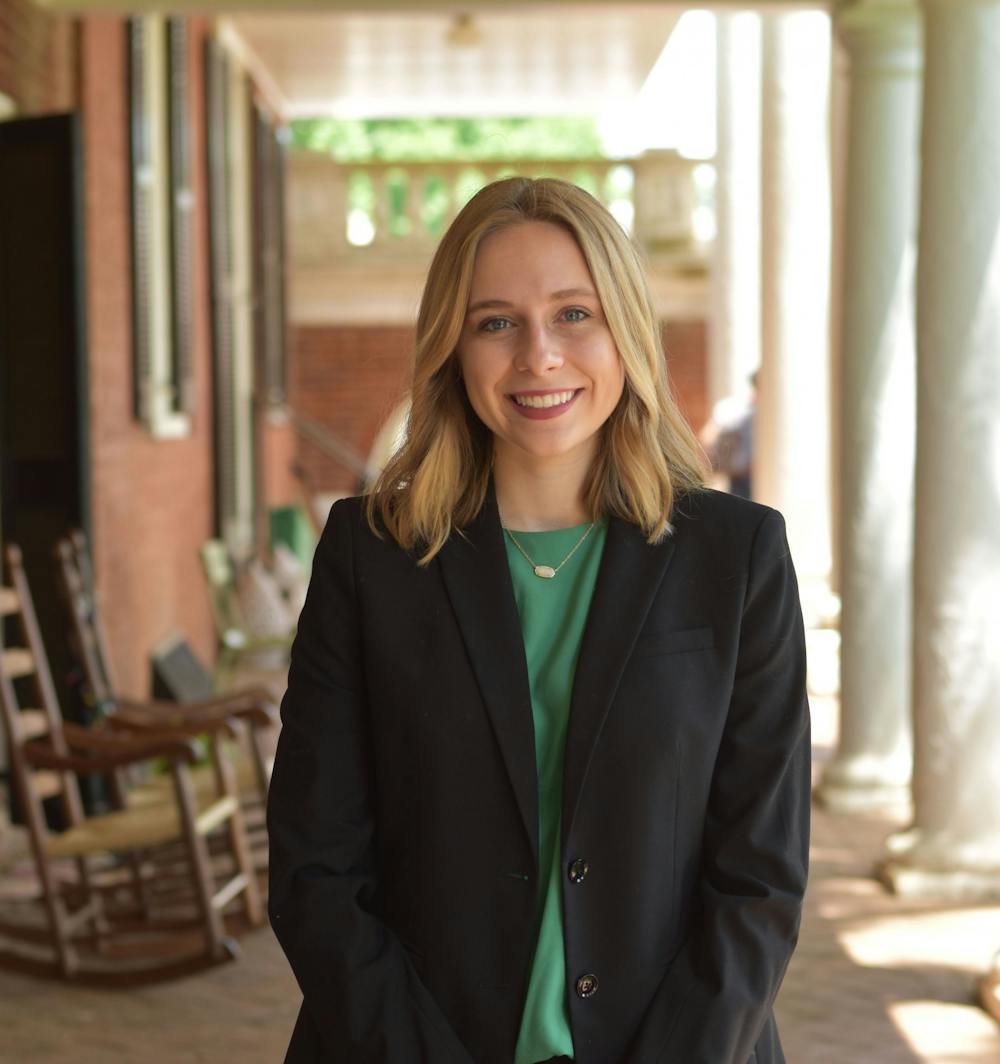The Cavalier Daily’s Facebook comment section can be an infuriating hotbed of activity. Many commenters are older alumni — or some not even alumni — voicing their opinions about events and decisions made at the University, and frequently, these commenters attack The Cavalier Daily and sometimes single out the writers themselves. While media outlets should be critiqued and publicly in some instances (that’s why The Cavalier Daily employs a public editor) in order to do their job better, some commenters seem to have never heard the advice against shooting the messenger.
The comments are brutal. For example, in a comment posted under one of the most recent articles, Richard said, “Please go to class. Perhaps you will learn why what you said is absurd.” When Virginia Athletics adopted its new logos, Allen said, “This is probably the most ridiculous thing ever published.” On another, Conan said, “For a news outlet at an educational institution, it is shocking how uneducated you are in how a business and this economy works.” And a particularly sexist comment, Donald said, “At least half of the female students are deranged and need immediate help.” I didn’t even have to go back a month to grab most of these comments from the Facebook page. They are so frequent and aggressive, the opinion section made a video of columnists reading mean comments on their own articles.
When I first started reading these comments at the beginning of my tenure as Editor-in-Chief, I took the comments personally. Then, I found comments such as John’s, which said “Get over it. If you don’t like UVA, transfer….You have a chip on your shoulder about something. Don’t blame the University.” Ali agreed with his comment, saying, “Oh wow, another Cav Daily article sh*tting on UVA.”
I love the University, and in my role as editor, I spent a significant amount of time writing, editing and publishing stories about the University — some negative, some positive, some that were just news. I worked some 50 hours a week at The Cavalier Daily because I love the University and along with many students, faculty, staff and administration, I want the University to improve. I want to try to do my part in working to make Grounds a better place — more welcoming, inclusive, supportive, informed, intellectual, happy and so on.
Journalists love their communities. That’s why they do their jobs. They actively work to hear and tell people’s stories from the position of genuine truth whatever that may be. And frequently, journalists uncover injustice or pain and suffering because of a flaw in the system, or heartbreak because of something simply unavoidable. These stories may not be what people want to hear. No one finds joy in reading or writing a story about COVID-19, for instance. When the world is overwhelmed in death, unspeakable grief and struggle, someone has to do the job of getting the information out, looking back to see what could have been avoided or how people can protect themselves and move forward.
Journalists do their jobs out of a love for their communities because one of the strongest loves is being able to see the flaws in the community that they love. And then they take the active, intentional step of working to correct that flaw by conveying the news — the truth.
Much like the frequent verbal attacks on journalists from political figures, and particularly President Donald Trump, student journalists face these Internet trolls on social media, and I think it’s important to remember the job student journalists are doing — and why they do it.
I love U.Va., and I see its problems — but I also see the University working every day to improve. I think we can all agree nothing can be perfect, but I believe it can be better. So John from the comments, this is why I am passionate about The Cavalier Daily and about journalism. This is why I published critical stories about the University and its administration and frequently from the perspective of students — to make Grounds better.
I’m sad I’m not writing my parting shot at a picnic table outside Newcomb, that I won’t be wearing my cap and gown to walk the Lawn May 16, 2020, that I never got to say goodbye to the people I love — my friends, professors, coworkers, the University — goodbye to my community I called home for 3.75 years, and most importantly, goodbye to the wonderful office and staff of The Cavalier Daily in the basement of Newcomb Hall.
I miss my final few weeks at a place that has made me so happy. Charlottesville in the springtime is enchanting, filled with all of my favorite things — perfect weather, live music in the outdoors, the Downtown Mall, vineyards, Final Fridays at the Fralin and on and on. Even the grass on the Lawn seems to be extra plush in April as the Rotunda glows pink at sunset.
I loved my experience at the University, and because I loved it, I was a journalist who wrote about its achievements and its failures. Through The Cavalier Daily, I tried to do my part in making the University a better place for everyone.
Gracie Kreth was the Editor-in-Chief for the 130th term of The Cavalier Daily. Prior to this, she served as Assistant Managing Editor for the 129th term and Life Editor for the 128th term.







